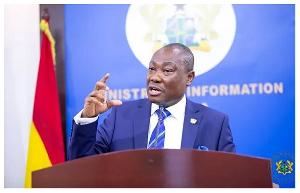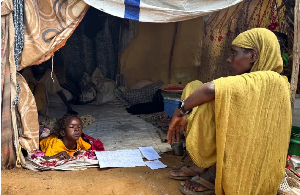The Peoples National Convention says when it takes over the mantle of leadership it will make agriculture a priority and encourage an increased production of cash crops and industrial raw materials and food items for the domestic and foreign market.
This is contained in the party's manifesto. The document was made public last week. It announced a programme that would guarantee the establishment of national food reserves and greater availability of basic products at affordable prices to meet the needs of Ghanaian.
On industrialisation it said the party would lay a foundation for import substitution that would reach about 50% of Gross National Product (GNP) in a short time because Ghanaians have comparative advantage in the use of locally produced raw materials.
The manifesto highlights mineral production and said a PNC government would attract investment into the mining sector and implement a programme that would encourage and get artisans and miners involved in the exploitation the nation's mineral resources especially bauxite and limestone.
The party said it would tackle the problem of unemployment by encouraging land-based economic activities by focusing on the development of the small secondary and tertiary industries. It also believes the provision of adequate economic infrastructure would reduce rural-urban population drift and create jobs for the youth.
The party has fashioned out a youth employment scheme, the New Skills Programme (NSP) for those already in the jobs market and a Youth Training Programme (YTP) for school leavers to prepare them to be gainfully employed. The party has noticed the scope of the job problem and promised to pursue strategies that would absorb the army of unemployed youth into productive ventures.
On housing, the party was hopeful that a PNC government would attract massive investment into the housing sector and promote joint venture and public investment strategies to provide adequate and affordable housing for the people.
It unveiled a comprehensive education programme that would make the population become literate within four years. Under the programme, priority would be given to primary, secondary, and tertiary, and vocational education as it was in the Nkrumah regime in the 1960s. Universities would be established in each of the regions to cater for the intake of graduates of both private and public schools.
General News of Thursday, 28 September 2000
Source: Accra Mail (Accra)






![Emmanuel Tetteh George and his wife Ruth Ewoenam [Image Credit: Manuel Photography] Emmanuel Tetteh George and his wife Ruth Ewoenam [Image Credit: Manuel Photography]](https://cdn.ghanaweb.com/imagelib/pics/943/94388192.295.jpg)





